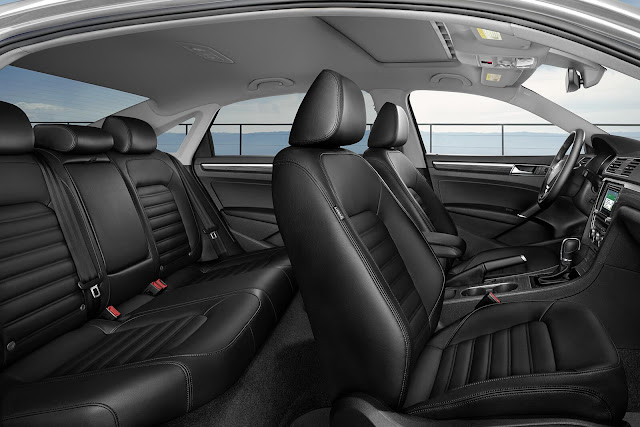If you are in the market for a new vehicle, you have a lot
of options. While most cars out there will get you from point A to point B, not
all models are created equal. Some brands offer more in terms of reliability,
fuel efficiency, safety and, of course, pricing. Volkswagen has set itself
apart in these categories and more since the automaker’s debut in 1937.
If you have not considered Volkswagen before, these are the
top reasons to join the VW family.
Fuel Efficiency
According to J.D.
Power, gas mileage is one of the top reasons people choose a specific
model. Fortunately for potential buyers, Volkswagen carries a large selection
of fuel-efficient midsize and compact cars. For example, the 2018 Passat, Golf
and Beetle are all available with 30 or more mpg
highway.
If you are looking for a sedan, the 2019 Jetta is one of the
most fuel-efficient vehicles in its class, offering an impressive
37 mpg combined – better than the Chevrolet Cruze, Toyota Corolla, Honda
Civic and Hyundai Elantra base models.
Affordability
Many VWs have a lower MSRP than the competition while still
offering comparable features and performance. Here is how several top-selling
2018 Volkswagens compare to their competitors according
to data from U.S. News and World Report:
Volkswagen Atlas
$30,750
|
Volkswagen Jetta
$19,645
|
Volkswagen Passat
$22,995
|
Ford Explorer
$32,140
|
Honda Civic
$19,740
|
Honda Accord
$23,570
|
Honda Pilot
$30,900
|
Subaru Impreza
$19,995
|
Toyota Camry
$24,150
|
Longer Warranty
One of the biggest benefits of buying a new or certified
pre-owned vehicle is the bumper-to-bumper warranty, and Volkswagen offers some
of the longest
warranties in the industry. The 2018 Atlas and Tiguan, for example, come
with the “People First Warranty,” which covers six years or 72,000 miles –
whichever comes first. This is nearly twice the standard three-year,
36,000-mile warranty most manufacturers currently offer.
Top Safety Ratings
Safety ratings are important to many drivers, and for good
reason. Volkswagens are some of the safest vehicles on the road and their
ratings back that up. In fact, several 2018 models received top recognitions
just last year, including:
- National Highway Traffic Safety Administration (NHTSA) 5-Star Safety Ratings: Jetta, Atlas and Golf
- U.S. News and World Report: 10/10 safety rating for Passat
- Insurance Institute for Highway Safety (IIHS) Top Safety Pick: Tiguan
Award-Winning Automaker
Several of the newest VW models have been recognized by
industry experts as the best in their class in recent months. For example:
- The 2018 Jetta was named the “most appealing compact car” by J.D. Power in late July
- The Atlas was dubbed the “best three-row SUV for families” by Parents Magazine and Edmunds in June
- The Golf was recognized as one of Kelley Blue Book’s “10 Coolest Cars of 2018” in May
Find Your New Volkswagen Today
There is a reason more than 10
million people worldwide purchased a Volkswagen last year – we encourage
you to see why at Neil Huffman Volkswagen in Louisville. We want to make your
car buying experience a great one, which is why we invite drivers to take
advantage of our complimentary two-year scheduled maintenance, 110 percent
Price Protection Guarantee and Huffman Value Pricing.

Actually I like VW Car. You share a great article. Thanks.
ReplyDeleteCar background removal service | Automotive enhancement service